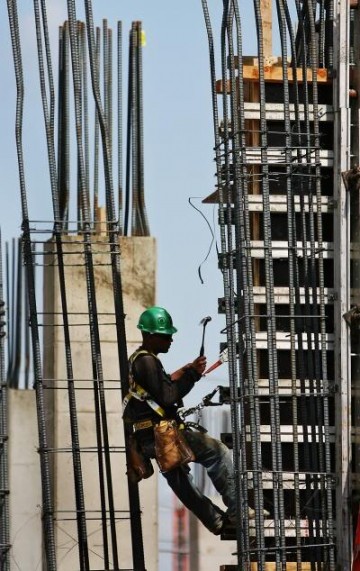Taxes and Red Tape Stagnate MA Building Permits
Thursday, March 07, 2013

Executive Director at Mass Fiscal Alliance, Paul Craney, said that this stagnation of one of the state’s best economic indicators is due to red tape and a high cost of living.
Building permits, he said, are vital to any area, bringing business, spending, families, jobs, and a tax base.
"As building permits decrease so do the jobs that follow them,” he said. “It's an easy fix. Our elected leaders need to pass laws that make Massachusetts more competitive. In the case of construction and development, they need to cut the red tape."
How MA Stacks Up
According to figures from the Institute of Truth in Accounting’s State Data Lab, Massachusetts lagged behind the national average in total building permits repeatedly in recent years.
In 2010, the Bay State recorded a total 9,075 permits, while the national average per state was a whopping 12,077. 2011 saw 7,725 building permits issued in Mass. -- 12,389 for the US average.
Last year, in 2012 Mass. racked up only 10,440 compared to the national average of 16,234 that year.
The number of building permits, according to Investopedia, isn’t usually a figure that “shocks the markets,” but is used to create estimates for other consumer-based indicators.

Chart courtesy the Institute of Truth in Accounting.
States that came out well ahead of the national average included Florida, California, North Carolina, and Texas, which saw the highest figures in both single family and total building permits. In 2012, Texas boasted 133,297 total permits and 78,809 single family building permits.
Bad News for Single Families
The state also performed poorly in terms of single-family dwellings, which also prove to be a good indicator of a strong economic area.

Chart courtesy the Institute of Truth in Accounting.
Local Figures
A recent report from the City's Executive Office of Economic Development gives a snapshot of how Central Mass has done in recent years.
The city issued a total of 2,854 permits for both residential and commercial renovations and new construction last year, with an estimated value of $178 million.
Worcester then accounted for .27 or about 1 in 4 of the total permits issued in 2012.
Unlike the state’s total numbers in 2012 and 2011, Worcester’s figures fell from 2011 figures (2,963 permits), going against the state trend.
2010 saw 2,600 building permits issued, with an estimated value of $157 million.

Taxes and Red Tape
Craney said that because of the state’s recent measures and the Governor’s proposed budget, these issues will continue to affect the state, making competition difficult.
“Massachusetts has a difficult time attracting development projects because the cost of living is so high, the red tape is unbearable and there is a steady reduction of high paying jobs,” he said. “Like most aspects of our state’s economy if we want to attract more development projects, we must become competitive with the other states around us and nationally.”
Craney was interested to see how local states were doing compared to Mass, especially New Hampshire, a state that he said has a tendency to attract more business than the Bay State. NH, however, greatly underperformed Massachusetts in regards to the number of permits, although it has been rated worse for businesses.
“By adding additional taxes and higher rates which reduce take home pay, as the Governor has proposed in his budget, we are not moving in the right direction for long term growth,” Craney added.
Added Costs
Bill Vernon, Massachusetts State Director of the National Federation of Independent Business (NFIB), said building permits, whether for residential or business use are a critical part of the state’s economy, but as long as the costs associated with building and doing business remain high, the state will continue to lose out.
One of those costs he touched on was electricity.
“It depends on the type of work, but clearly manufacturing is something heavily affected by electricity costs, which is very important in Worcester County and throughout the area,” he said. “It’s a significant part of the cost to do business.”
Related Articles
- Mass Small Business Owners Plagued by High Costs
- 4 Central Mass Businesses Named 2012’s Best Places to Work
- Changes to Worcester’s Tax Classification Will Bury Small Businesses
- Impact Of Patrick’s Deregulation On Small Businesses
- MA Property Taxes Among Nation’s Worst For Businesses





Follow us on Pinterest Google + Facebook Twitter See It Read It